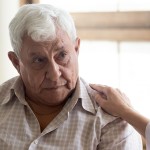
The COVID-19 pandemic has changed life for everyone, everywhere. The fear of getting infected, living in a lockdown state, and in isolation is increasing stress among people of all age-groups. Along with daily stressors, coronavirus is adding to the woes of people. The older adults who are vulnerable are also experiencing increased stress. Other than the age-related stress issues like health concerns, financial planning, and loss of a loved one, in present times, elderly are looking for a silver lining in the dark clouds.
April being the stress awareness month, let us get an insight into causes, symptoms, and ways to mitigate stress in the elderly. Often referred to as the “fight or flight response” of the body, if you notice any of the below signs, then you can be in a stressed state.
Signs of Stress in Elderly
- Constant worrying
- Irritability
- Problems with digestion
- Difficulty sleeping
- Increase in bodily aches and pains
- Frequent headaches
- Difficulty concentrating
Health Concerns Related to Stress
The continuous exposure to stress can leave a chronic effect on your life, impacting the performance of various internal organs down to the cellular level. The common health concerns related to chronic stress include
- Depression
- Anxiety
- Heart Disease
- Headaches
- Diabetes
- Asthma
- Gastrointestinal issues
- Alzheimer’s disease
In the wake of the coronavirus spread, addressing stress-related issues is more crucial than ever before. Eliminating the stress-causing factors may not be possible; however, learning how to control stress reactions to alleviate the body’s response needs immediate attention.
Ways to Reduce Stress
There are various ways to mitigate stress and some of the effective ones, which you can try during the lockdown period include
Meditate & Become Mindful: During these stressful times, meditation and mindfulness can go a long way in dealing with anxiety. It will help you feel calmer and more relaxed.
Pro Tip: Start meditating every day for 10 to 15 minutes. If you are a beginner, you can try meditation lighting incense sticks or calming music to develop a habit of meditation.
Exercise & Stay Active: Exercising can improve your immunity level and reduce the stress level significantly. So, start exercising and draw physical and cognitive benefits. Working out increases the lung capacity, bone density, muscle strength, and overall longevity. Besides, it also improves your brain health. A study by the University of Illinois suggests that a moderate level of activity works on improving overall cognitive health as well.
Pro Tip: Start with 20 to 30 minutes of every workout in your home balcony or garden. It can be the perfect way to start your day. During this lockdown phase, if you can practice yoga and deep breathing exercises, you will benefit from clear lung airways and improved immunity. However, perform pranayama and exercises after consulting your doctor. Besides, workout under supervision or do it only if you already know these exercises.
Eat Healthy; Avoid Sugar: Now that you are home confined, it is the perfect time to cook light and nutritious meals. A diet rich in essential vitamins and minerals can help your body to function optimally. Introduce fresh fruits and salads for snacks. Avoid indulging in junk and packaged food, especially food containing a high percentage of sugar and salt.
Pro Tip: Eat Omega-3 fatty acids in the morning like a teaspoon of mixed seeds to keep the sweet cravings at bay.
Socialise from a Distance: It is social distancing that is the need of the hour, not social boycott. You can virtually connect with your friends and family across the globe and spend a substantial part of your day socialising. Make the most of technology and socialise while maintaining a distance. When you are socially connected, you tend to feel engaged and comforted.
Talk It Out: If you are unable to discuss the stressors with your friends and family, then look for professional help. You can connect with a psychologist over a phone call and benefit from teleconsultation. Sometimes it is ideal to talk to someone who has no background about your life concerns and issues. Besides, when you connect with an expert, you can get professional advice.
However, if you long for that someone who can give professional advice with a personal touch, then Samvedna Senior Care is a name on which you can rely. Evolved for the benefit of seniors, we know negative thinking and depression are detrimental for older adults. Our team of adroit professionals are there for you, even amidst the coronavirus crisis. We are offering online counselling, telemedicine consultation, and remote eldercare support. Don’t worry if your children are not in the city with you; we are here for you even now. Connect with us, discuss your concerns, and give us a chance to serve you. Elders have a special place in our society and every Indian home, we understand and know these values. If you need that personalised counselling session, then let a Samvedna Senior Care specialist serve you and bid adieu to your stress causing factors forever.
from Samvedna Senior Care https://ift.tt/2VkZyjU
via IFTTT
Comments
Post a Comment